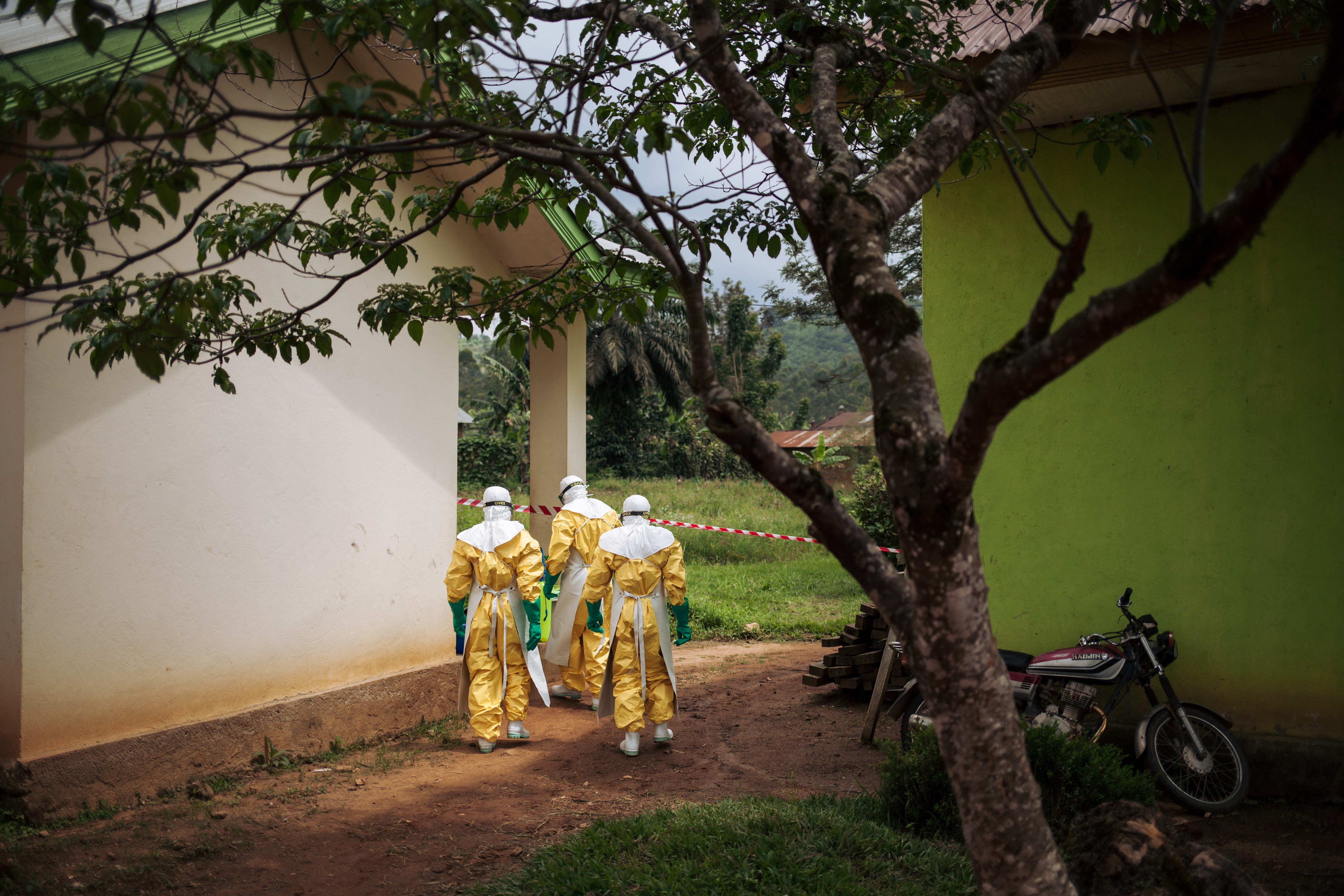Ebola DRC: MSF calls for an international, independent committee for Ebola vaccination to overcome lack of WHO transparency
Despite the availability of a highly effective Ebola vaccine in north-eastern Democratic Republic of Congo (DRC), only a fraction of the eligible population is receiving it. One reason for this is the World Health Organization's (WHO) strict limits on the number of doses used in the field. Today, international medical humanitarian organisation Médecins Sans Frontières/Doctors Without Borders (MSF) calls for the establishment of an independent, international coordination committee to improve the transparency of the vaccination programme and increase access for the population.
The current Ebola outbreak in DRC has killed over 2,000 people with a mortality rate of 67%. This is comparable with the 2014-2016 West Africa outbreak, when tools such as the vaccine and therapeutic treatments were not available.
“Community mistrust and resistance have often been cited as the major obstacles in the fight against Ebola. However, we need to stop blaming communities for their own deaths and make sure more people have access to treatments and vaccines,” says Dr Natalie Roberts, MSF Emergency Coordinator.
Thanks to the efforts of the Ministry of Health and the World Health Organization (WHO), approximately 225,000 people have been vaccinated with rVSV-ZEBOV, an investigational vaccine produced by Merck that has shown very high levels of efficacy. However, this number remains largely insufficient. Ebola experts’ have recommended vaccinating between 150 and 200 contacts for each confirmed Ebola patient. With 3,150 total confirmed cases reported so far, between 450,000 and 600,000 people should have been vaccinated - more than double the actual number of 225,000.
“Upping the pace of vaccination is necessary and feasible: at least 2,000-2,500 people could be vaccinated each day, instead of 500-1,000 as is currently the case. Yet the WHO is restricting the availability of the vaccine in the field, as well as the eligibility criteria and their application for unclear reasons” says Dr Isabelle Defourny, MSF Director of Operations. “Even when it comes to frontline health workers, a known and easily reachable population, in a hotspot of the outbreak such as Beni, almost a third of them reported they have not been vaccinated.”
MSF’s efforts to expand access to the vaccination, in collaboration with the ministry of Health and according to the recommendations of the Strategic Advisory Group of Experts (SAGE) in May 2019, have been frustrated by the tight controls on supply and eligibility criteria imposed by the WHO. These restrictions are in place despite the rVSV-ZEBOV vaccine demonstrating a good safety profile and a high level of protection against the virus. MSF vaccination teams in North Kivu have often been forced to remain on standby, waiting to receive a handful of doses reserved for people on a pre-defined list.
“Time is of essence in an outbreak: medical teams should be able to rapidly provide treatments or vaccines based on what they see on the ground. But our capacity to carry out real-time assessments and react accordingly is severely undermined by a rigid system which is hard to comprehend. It’s like giving firefighters a bucket of water to put out a fire, but only allowing them to use one cup of water a day. Every day we see known contacts of confirmed Ebola patients who have not received their dose despite being eligible for vaccination,” says Dr Roberts.
“To allow for the best possible use of experimental tools in an outbreak context, transparency is key. How can we expect the Congolese population to trust a system that is not even transparent to front-line health workers like MSF?” notes Dr Roberts.
MSF calls for the urgent creation of an independent, international coordination committee, based on the model of the International Coordination Group created in 1997. This composed of MSF, the International Federation of Red Cross, UNICEF and WHO, and proved successful in managing massive meningitis, cholera and yellow fever outbreaks with limited vaccine supplies. The committee would bring partners together to improve coordination on vaccination, increase transparency in stock management, share data, foster an open dialogue with the manufacturers and ultimately ensure that the vaccine is provided to all those most at risk of being exposed to the virus.
ENDS
Notes to editor
Ebola outbreak latest
More than one year into the ongoing Ebola outbreak in north-eastern DRC, the disease has killed over 2,000 people, roughly two thirds of those who have been infected by the virus. As many as 40% of those who have died have died at home before they could even be identified as patients. While the pace of transmission appears to have slightly ebbed in recent months, cause for concern remains as some areas have been active hotspots for over a year now and other hotspots have become active after extended periods without reporting new cases.
Merck vaccine usage
The rVSV-ZEBOV vaccine has demonstrated a good safety profile and a high level of protection against the virus in a Phase-3 clinical trial in Guinea in 2015. In the absence of regulatory approval, the Congolese ministry of Health and the WHO allowed the vaccine to be used under an ‘Expanded Access’ framework. Merck recently stated that in addition to the 245,000 doses already delivered to WHO, they are ready to ship another 190,000 doses if required and that 650,000 additional doses will be available over the next 6-18 months.
MSF’s work in DRC
MSF has been active in the Ebola intervention in north-eastern DRC since its declaration on 1 August 2018. MSF teams have been involved in several activities including provision of care to confirmed and suspect Ebola patients, vaccination of frontline workers, strengthening of infection prevention and control measures and community outreach. They have also been working with numerous health facilities in North Kivu and Ituri in order to support access to general healthcare for the population during the Ebola epidemic.
.jpg)